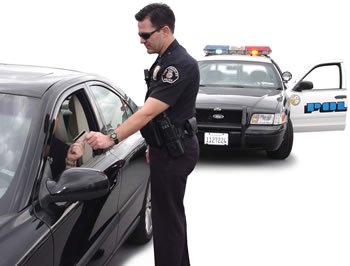Recent Opinion on a Case out of the Oakland County Circuit Court
In the Oakland County Circuit Court, if you are charged with OWI Third Offense, the police officer’s memory of a traffic stop may be more persuasive to the judge than a video recording.

Great Attorneys File Motions to Suppress Regardless of Tough Judges and Conservative Laws
The Michigan Court of Appeal decided today that an officer’s testimony regarding the reason for a traffic stop might be more persuasive than a videotape of the stop. In People v. Brian Vanbibber, COA #297186, the defendant was charged in the Oakland County Circuit Court with OWI Third Offense. The defense filed a Motion to Suppress based upon an allegation that the traffic stop was unconstitutional. The arresting officer testified that the videotape was unclear and that her recollection of the stop was more accurate. The trial court agreed with the officer and denied the Motion to Suppress. Although courts routinely resist granting motions to suppress evidence, dutiful attorneys do what it takes to protect and defend their clients.
The Court of Appeals reviewed the law in Michigan regarding the Fourth Amendment right to be free from unlawful seizure as follows:
In order to effectuate a valid traffic stop, a police officer must have an articulable and reasonable suspicion that a vehicle or one of its occupants is subject to seizure for a violation of law.” People v Williams, 236 Mich App 610, 612; 601 NW2d 138 (1999). A traffic stop is permissible when an officer has probable cause to believe that a traffic violation has occurred or was occurring. People v Davis, 250 Mich App 357, 363-364; 649 NW2d 94 (2002). Therefore, upon “reasonable grounds shown, a police officer may stop and inspect a motor vehicle for an equipment violation.” Williams, 236 Mich App at 612. Additionally, “a police officer who witnesses a civil infraction may stop and temporarily detain the offender for the purpose of issuing a written citation.” People v Chapo, 283 Mich App 360, 366; 770 NW2d 68 (2009). An actual violation of the vehicle code need not be proven. Rather, the officer’s reasonable impression that a violation may have occurred is the dispositive question. People v Fisher, 463 Mich 881, 882; 617 NW2d 37 (2000) (Corrigan, J.) A traffic violation or civil infraction provides sufficient cause to justify the stop of a vehicle. People v Kazmierczak, 461 Mich 411, 420 n 8; 605 NW2d 667 (2000).”
The Ruling Suppressing Evidence was Upheld
In its opinion, the appellate court upheld the trial court and found that it cannot substitute its judgment for the trial court judge’s relative to factual findings. The ruling regarding the Motion to Suppress was affirmed despite the best efforts of the motion to suppress attorneys advocating for their client. Oakland County prosecutors rely on local judges to “have their backs,” but the Court of Appeals did the right thing.

Attorneys Who Win Motions to Suppress Illegally Seized Evidence
At LEWIS & DICKSTEIN, P.L.L.C., we’ve filed and argued motions to suppress evidence for clients on countless occasions. We do our best to find a basis for getting our client’s cases dismissed and do whatever is necessary to give you the best chance of winning in court or getting charges dismissed.
Call us today at (248) 263-6800 for a free consultation or complete an online Request for Assistance Form. We will contact you promptly and find a way to help you.













